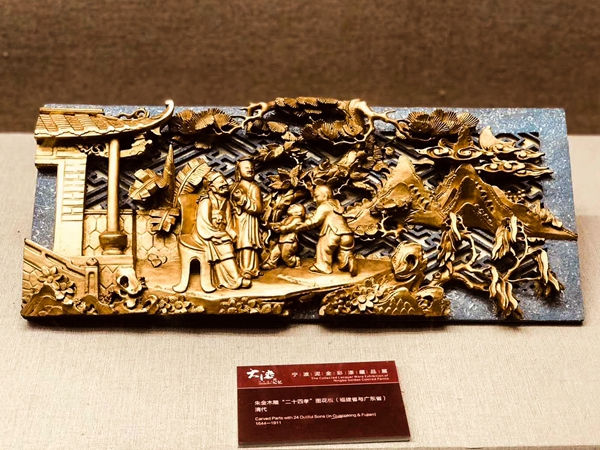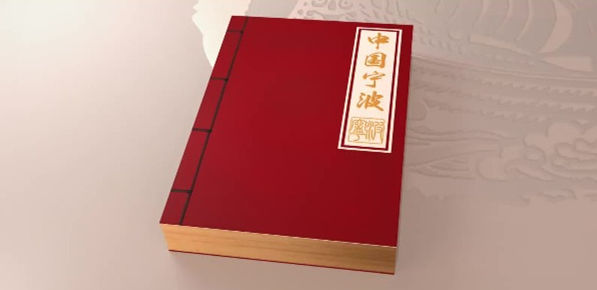Giving lacquerware a new shine

Pieces of gold-painted lacquerware and undecorated woodcarvings are showcased at Huang Cailiang's art museum in Ninghai, in Zhejiang province's Ningbo.[Photo by Xiao Da/China Daily]
These somewhat extravagant wedding customs have bred a time-honored handicraft in Ninghai-gold-painted lacquerware, which was widely used in weddings and was recognized as a form of national-level intangible cultural heritage in 2011.
Such lacquerware originated in Hemudu Culture 7,000 years ago and became popular in the Ming (1368-1644) and Qing (1644-1911) dynasties for its magnificent appearance and auspicious colors, stereoscopic patterns with rich themes and resistance to erosion.
Its creation requires over 20 steps, including pasting such patterns as landscapes, flowers and figures on wooden roughcasts, and decorating them with gold foil.
Due to the complicated production and decreasing market demand, the handicraft gradually lost its following in modern times.
But the skills used to create it have survived, thanks to the persistence of a small group of craftspeople in Ninghai. It has even returned to public attention in recent years.
Although modern weddings don't require such lacquer furnishings, they're still popular gifts for newlyweds.
Huang Cailiang is an officially recognized inheritor of the time-honored craft he has practiced for more than four decades. He promotes the craft among the public.



 Print
Print Mail
Mail
